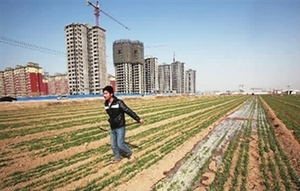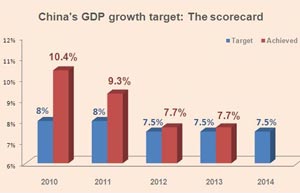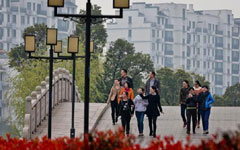New urbanization plan ambitious: Analysts
By Zheng Yangpeng (China Daily) Updated: 2014-03-18 07:34
|
 A basketball court in a renovated district of Zaozhuang, Shandong province. The central government aims to accelerate such projects, part of the nation's urbanization drive, with total investment expected to exceed 1 trillion yuan ($162 billion) this year. Guo Xulei / Xinhua |
China's first urbanization plan demonstrates its ambition to achieve multiple goals through a massive economic and social program, analysts said.
The multiple goals are evident in the text of the plan, which not only discusses giving migrant workers full urban rights - a policy repeatedly pledged by the government - but also deals with a wide spectrum ranging from better city layouts, employment, regional development, public service systems, reductions in energy use and even the conservation of cultural heritage.
"It is a comprehensive plan across different government departments that deals with a full range of issues. What impressed me is it actually concentrates less on the economic aspects and more on social and environmental matters," said Jonathan Woetzel, co-chair of the Urban China Initiative and director of McKinsey & Co.
He said this showed the government attaches much more importance to the quality of urbanization and puts the urban inclusiveness at the center of the program.
"I don't think the government has a choice (in terms of advancing urbanization). Instead, its goal is to find ways to help migrant workers," he said, adding the specific number in the plan should be interpreted more as an "expectation" than a "target".
 Urbanization should be for people's sake |
 |
- China unveils landmark urbanization plan
- China unveils urbanization plan for 2014-2020
- Financial investment system and policy innovation in the urban-rural integration of Chengdu
- Urbanization: major driving force of economic development
- A study on the strategy and measures on promoting the sound development of China's urbanization
- NHTSA says finds no 'defect trend' in Tesla Model S sedans
- WTO rare earth ruling is unfair
- Amway says 2014 China sales may grow 8%
- President Xi in Europe: Forging deals, boosting business
- CNOOC releases 2013 sustainability report
- Local production by Chery Jaguar Land Rover this year
- Car lovers test their need for speed in BMW Mission 3
- China stocks close mixed Monday



















